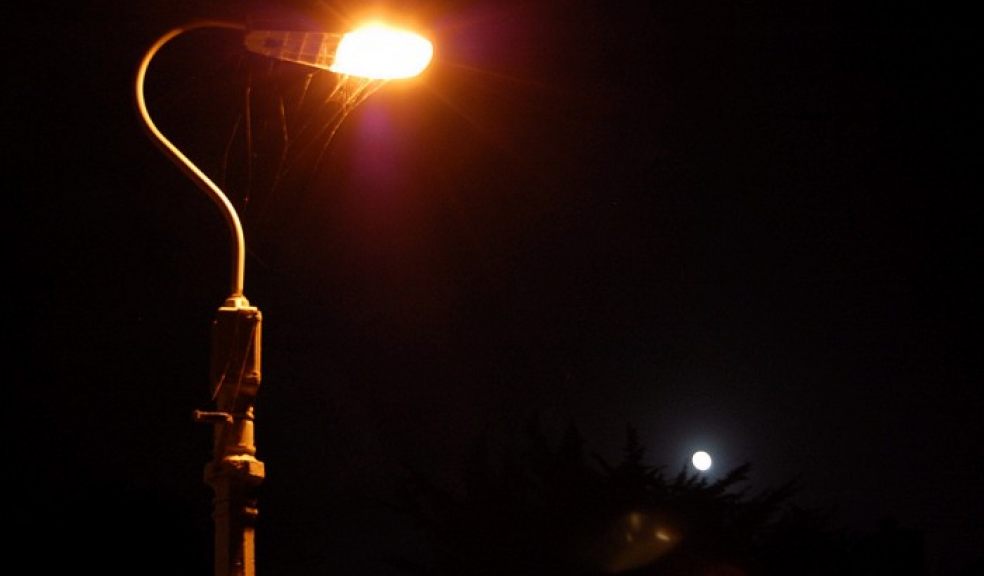
Streetlighting: consultation on carbon savings programme for Exeter gets underway
Consultation on proposals for part-night streetlighting in residential areas of Exeter is getting underway.
Devon County Council is inviting local county councillors, Exeter city councillors and the Police to provide their views in order to help shape plans ahead of wider consultation later this Summer. No recommendations are being made at this stage - stakeholders are being asked for their comments as a starting point in developing initial proposals.
As part of the County Council’s on-going programme to reduce carbon emissions and energy costs, street lights in some residential areas of the city are planned be switched off overnight.
Lighting on main roads (A and B roads), areas of high night-time activity and walking home routes will remain lit all night.
The final plans, which will be drawn up over the coming months, are for some street lights in residential areas to be switched off between about 12:30am and 5:30am, before coming on again at dawn.
The views of stakeholders will be used to further develop the plans before they are displayed around the city and residents will be asked for their feedback. Dates and locations are yet to be finalised for the public displays but exhibitions are likely to be held in July.
Councillor Stuart Hughes, Devon County Council Cabinet Member for Highways, said: “This is the start of the consultation on streetlighting in Exeter and we’re keen to gather the views of stakeholders and residents in helping us draw up the final plans. We’re looking to cut carbon emissions and costs, but busy areas of the city centre will remain lit all night and main roads will remain lit all night. We are also aiming to develop a network of busy “walking home routes” which will remain lit all night. We have already gained some useful input from the University of Exeter Student’s Guild following their presentation to the Exeter Board last November, and further consultation work will ensure that other people can have their say before the final decisions on the scheme are made."
Councillor Andrew Leadbetter, Devon County Council Cabinet Member for Exeter, said: “We are making sure that stakeholders can provide us with their views at the earliest possible opportunity while plans are being drawn up. The input from local councillors, Police and the Students’ Guild will give us a solid starting point on which to consult further, so that we can produce a scheme in which we will all have been able to play a part.”
Since January 2010, over 35,000 streetlights across Devon have been converted to part night lighting. This has already saved around 4,000 tonnes of CO2 and approximately £1.2 million from the Council's electricity bill. Part night lighting is part of a wider package of carbon saving measures, which also includes night dimming and the use of low energy equipment and LED technology where appropriate.
The County Council will be investing in an advanced lighting system in Exeter to remotely control key areas of street lighting in the city. This system would allow much more flexibility in the operation of street lights by providing direct control of every light connected to the system.
Devon County Council is responsible for nearly 77,000 street lights, costing £2.2million in electricity and producing nearly 20,000 tonnes of CO2 every year. That accounts for around 30% of the County Council’s annual emissions of almost 62,000 tonnes of CO2 - the equivalent of the total annual energy use of 7,300 average Devon homes, or a town about the size of Honiton in East Devon.
For more information visit www.devon.gov.uk/streetlighting
If you have a strong opinion on this, why not write a blog for The Exeter Daily (Register here or if you are already registered post your blog here).














